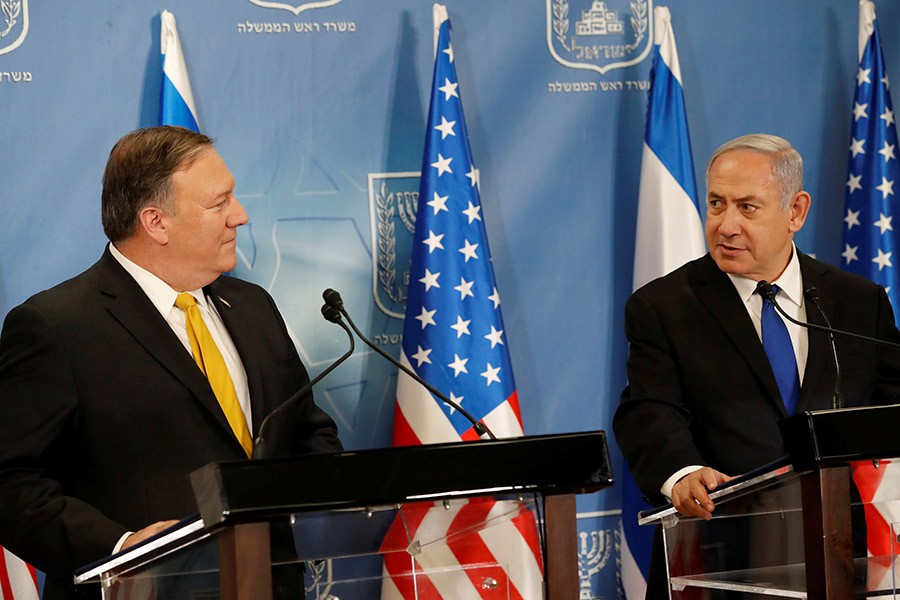US Secretary of State Mike Pompeo says a landmark nuclear deal with Iran was "built on lies," after Israel claimed to have proof of a secret Iranian nuclear weapons programme.
Mr Pompeo said documents revealed by Israel's prime minister were authentic.
Analysts say they show nothing new, highlighting that concerns over Iran's nuclear ambitions led to the 2015 deal.
US President Donald Trump, who opposes the accord, has until 12 May to decide whether to abandon it or not, according to a BBC report Tuesday.
Other Western powers, including signatories Britain and France, say Iran has been abiding by the deal and it should be kept.
What is Iran accused of?
Israeli Prime Minister Benjamin Netanyahu on Monday accused Iran of conducting a secret nuclear weapons programme, dubbed Project Amad, and said it had continued to pursue nuclear weapons knowledge after the project was shuttered in 2003.
That followed the revelation in 2002 by an exiled Iranian opposition group that Iran was constructing secret nuclear sites in breach of the nuclear Non-Proliferation Treaty, of which Iran was a signatory.
Mr Netanyahu presented what he said was evidence of thousands of "secret nuclear files" that showed Iran had lied about its nuclear ambitions before the deal was signed in 2015.

Tension between the long-standing enemies has grown steadily since Iran built up its military presence in Syria, which lies to the north-east of Israel.
Iran has always denied seeking nuclear weapons, and agreed three years ago to curb its nuclear energy programme in return for the lifting of sanctions.
The Israeli prime minister did not provide evidence that Iran had violated the accord since it went into effect in early 2016. But he insisted that Project Amad had continued at the Iranian defence ministry - citing the head of the programme as saying: "Special activities will be carried out under the title of scientific know-how developments."
Mr Netanyahu said he had shared the files with the US, and they would be submitted to the International Atomic Energy Agency (IAEA), which has been tasked with investigating Iran's nuclear past.
What does the US say?
The new secretary of state said the documents were proof "beyond any doubt" that "the Iranian regime was not telling the truth".
"Iran hid a vast atomic archive from the world and from the IAEA - until today," Mr Pompeo added.
Mr Trump, who has been vocal about his opposition to the Obama-era deal, said he had viewed part of Mr Netanyahu's presentation and said the situation was "not acceptable".
He said he would make a decision on whether to retain the deal in the next 12 days.
What is Iran’s reaction?
Iran's Foreign Minister Javad Zarif said the move by Mr Netanyahu was a stunt to influence Mr Trump's decision on whether the US should stick with the nuclear deal.
He said the documents were a rehash of old allegations already dealt with by the IAEA. A former chief inspector at the agency told the Guardian newspaper his department had seen some of the documentation presented by the Israeli prime minister as early as 2005.


